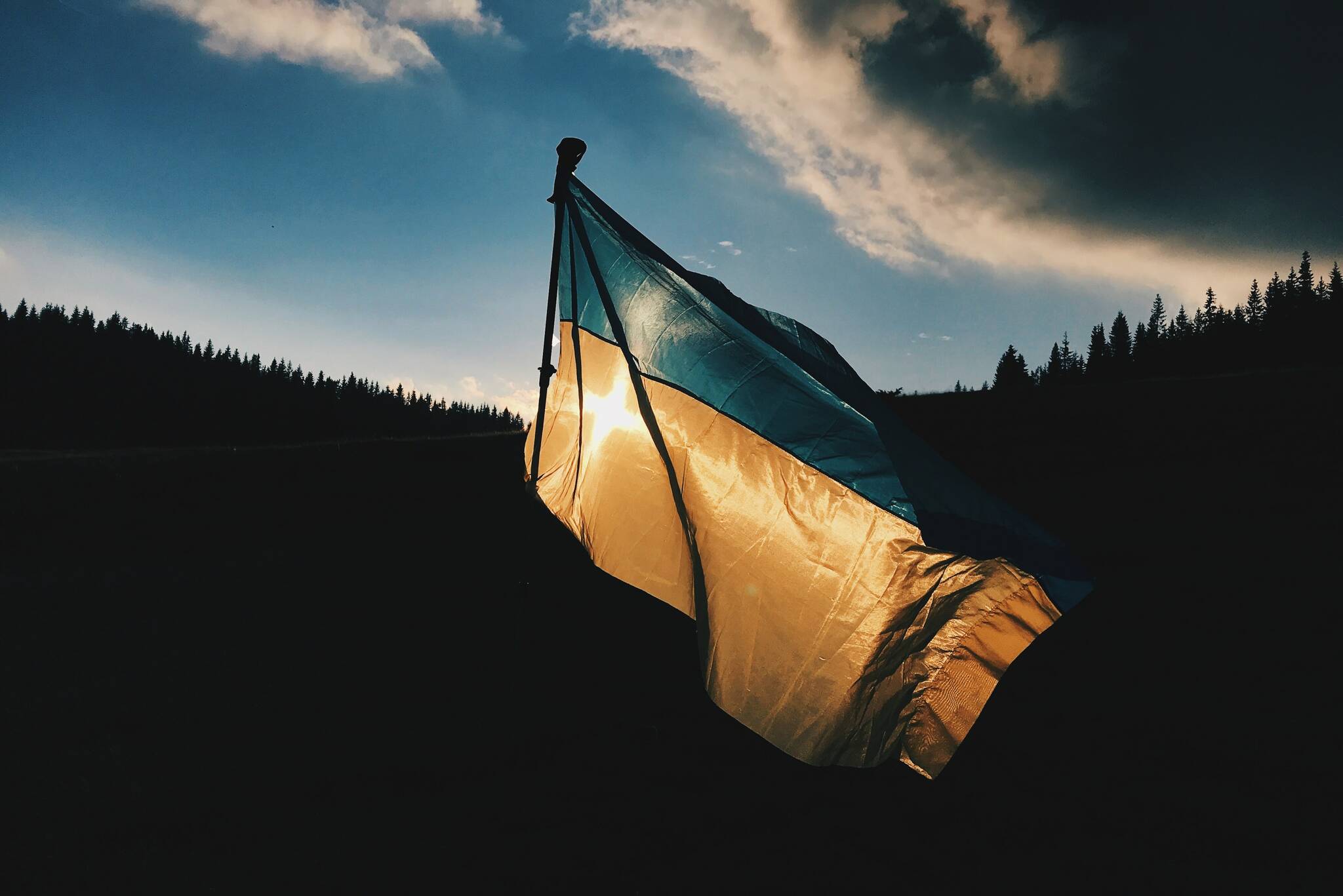By Rich Moniak
NATO, shelter our sky — we’ll handle the rest” read the sign held by Viktor Tkachenko at a Juneau solidarity protest for Ukraine on Saturday. Calling for a no-fly zone over his country that’s been invaded by Russia echoed an earlier request by Ukrainian President Volodymyr Zelenskyy to “close the airspace.”
However, Zelenskyy’s plea and his amazingly courageous defiance of Russia hasn’t resulted in NATO’s military defense of his country.
That’s not because Western leaders are weak, as some Republicans seem quite happy to argue. Sen. Lisa Murkowski got it right when she stated Putin’s “grievous violation of international law … came with a clear view, formed over the course of years and only reinforced in recent months, that the West is divided and will not make Russia pay for its actions.”
As a 17-year-old who left Ukraine for Alaska less than a year ago, it’s understandable that Tkachenko wants the West to use more than economic sanctions against the Russian invaders. His fears for family and friends he left behind are real. Even if they survive the war, their freedoms could be seriously curtailed. In fact, under a regime controlled by Russian President Vladimir Putin, Ukrainians could be jailed for speaking at a protest as he did on Saturday.
But because Ukraine is not a member of NATO, the alliance isn’t bound by treaty to engage in what would most certainly escalate into a confrontation between the world’s largest militaries and possessors of nuclear weapons.
Those facts left Ukraine vulnerable and NATO appearing militarily weak.
But Kelly Tshibaka, a Republican candidate for Murkowski’s senate seat, issued a statement claiming Russia’s invasion “demonstrates what happens to world stability when the United States shows weakness. For too long, Joe Biden placated Putin’s desires to complete the Nord Stream 2 natural gas pipeline to Germany.”
That’s a conveniently simple view of a complicated debate between America and its NATO allies.
Congress included a provision imposing sanctions related to the project in the 2020 National Defense Authorization Act. Many European leaders, particularly in Germany, opposed the move as U.S. interference in the affairs of their nations. Then-President Donald Trump signed the NDAA into law in December 2019.
At that point, construction of the pipeline was 90% complete. Biden waived the sanctions last May. With full European support, they were reimposed after Russia invaded Ukraine.
That part of the divided West is best described as the difficult hand Biden inherited when he was elected President. It goes back to earlier sanctions against Russia after it seized Crimea and began supporting armed separatists in other regions of Ukraine. The U.S. and NATO didn’t always see eye to eye on those either.
Tshibaka isn’t interested in those facts. She and other Republicans calling Biden weak are attempting to use the war to push Americans further into their partisan corners.
That’s the other part of the divided West that Putin saw as an advantage. Indeed, since 2016, he’s been deliberately trying to make it worse.
Americans were already politically polarized and war weary when U.S. intelligence agencies determined Russia interfered the 2016 presidential election, often with the objective of aiding Trump’s campaign. The Republican-led Senate Intelligence Committee agreed with that conclusion.
Despite those findings, Trump pitifully accepted Putin’s denials, thus leading a wide swath of the American public to trust Putin more than our nation’s intelligence experts.
We were also pulled into opposite corners by Special Counsel Robert Mueller’s investigation into Trump’s possible collusion with Russia.
Six months after Mueller reported the investigation didn’t establish such a coordinated effort, Trump attempted to withhold congressionally approved military aid for Ukraine’s defense against Russia. The resulting impeachment by the Democratic further amplified our internal divisions.
Then the COVID-19 pandemic hit. Aside from ruining a lot of businesses and putting people out of work, disagreements over school closures, masks and vaccinations kept the anger between Americans in the public spotlight for two years.
Finally, Trump’s ongoing false assertions that the 2020 presidential election was stolen from him has left well over half of the country’s Republicans, including Tshibaka, believing Biden is an illegitimate president.
In this atmosphere, it’s nearly impossible to appear as a united front against Putin. And those who are using his vile aggression to divide us are playing into his hand.
• Rich Moniak is a Juneau resident and retired civil engineer with more than 25 years of experience working in the public sector.

